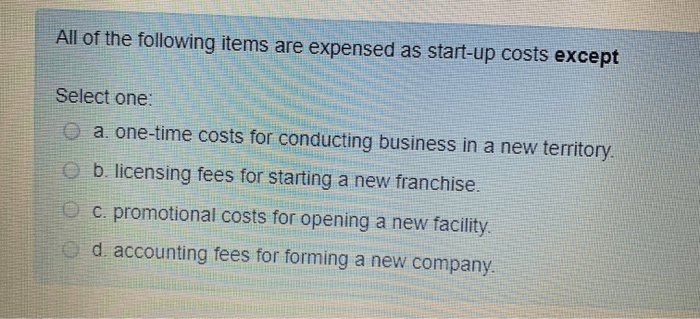Philosophy helps to eliminate all of the following except: sets the stage for this enthralling narrative, offering readers a glimpse into a story that is rich in detail and brimming with originality from the outset.
Philosophy is a discipline that challenges assumptions, encourages critical thinking, and fosters a questioning mindset that undermines ignorance. It promotes empathy and understanding among diverse perspectives, helping to overcome prejudice and narrow-mindedness. Philosophy encourages open-mindedness and intellectual flexibility, fostering a willingness to consider alternative viewpoints and question established beliefs.
It exposes the flaws in biased thinking and promotes objectivity, helping us overcome biases and make more informed judgments.
Philosophy and the Elimination of Ignorance

Philosophy plays a crucial role in challenging assumptions, fostering critical thinking, and undermining ignorance. It encourages a questioning mindset that probes the validity of beliefs and ideas, leading to a deeper understanding of the world.
Socratic Questioning
The Socratic method of questioning relentlessly examines the foundations of beliefs, exposing contradictions and inconsistencies. This process forces individuals to critically evaluate their assumptions and seek logical justifications, thereby reducing ignorance and promoting intellectual growth.
Skepticism
Philosophical skepticism questions the reliability of knowledge, urging us to examine the limits of our understanding. By considering alternative perspectives and challenging established beliefs, skepticism encourages a healthy skepticism that prevents us from blindly accepting information and fosters a thirst for truth.
Epistemology
Epistemology, the study of knowledge, investigates the nature, scope, and limits of human understanding. It explores the sources of knowledge, such as reason, experience, and intuition, and provides frameworks for evaluating the validity of beliefs.
Philosophy and the Mitigation of Intolerance

Philosophy promotes empathy, understanding, and respect for diverse perspectives, contributing to the reduction of intolerance. It provides tools and principles that foster open-mindedness and encourage dialogue among different viewpoints.
Rationalism
Rationalism emphasizes the importance of reason and logic in understanding the world. It encourages individuals to engage in rational discourse, where arguments are evaluated based on their logical coherence rather than emotional appeals or prejudices.
Compassion
Philosophy encourages compassion and empathy by emphasizing the interconnectedness of all living beings. It fosters a sense of shared humanity, breaking down barriers of prejudice and intolerance.
Dialogue and Respectful Discourse
Philosophy promotes dialogue and respectful discourse as means of resolving conflicts and fostering understanding. It teaches the importance of listening to and engaging with opposing viewpoints, even when they differ from one’s own.
Philosophy and the Challenge to Dogmatism: Philosophy Helps To Eliminate All Of The Following Except:

Philosophy encourages open-mindedness and intellectual flexibility, challenging dogmatic thinking and promoting a willingness to consider alternative viewpoints. It fosters a spirit of inquiry and critical evaluation that undermines rigid adherence to established beliefs.
Critical Thinking
Philosophy cultivates critical thinking skills, teaching individuals to analyze arguments, identify biases, and evaluate evidence. This process promotes intellectual flexibility and openness to new ideas, challenging the blind acceptance of dogmatic beliefs.
Questioning Established Beliefs, Philosophy helps to eliminate all of the following except:
Philosophy encourages the questioning of established beliefs, challenging the status quo and seeking deeper truths. It fosters a willingness to re-examine and revise one’s own beliefs in light of new evidence and perspectives.
Intellectual Freedom
Philosophy promotes intellectual freedom by encouraging individuals to think independently and challenge authority. It fosters a culture of open inquiry and debate, where ideas are freely exchanged and evaluated on their own merits.
Philosophy and the Exposure of Prejudice

Philosophy exposes the flaws in biased thinking and promotes objectivity, contributing to the reduction of prejudice. It provides principles and methods for evaluating the validity of beliefs and identifying logical fallacies.
Logic
Logic provides a framework for evaluating arguments and identifying logical inconsistencies. It helps individuals detect biased reasoning and fallacies, undermining the persuasive power of prejudiced beliefs.
Critical Reasoning
Critical reasoning skills enable individuals to analyze information objectively, identify biases, and draw informed conclusions. This process helps overcome prejudiced beliefs and promotes inclusivity.
Challenging Prejudiced Beliefs
Philosophy has a long history of challenging prejudiced beliefs, using reason and evidence to expose their flaws. It provides frameworks for analyzing and deconstructing prejudiced arguments, fostering a more just and equitable society.
General Inquiries
What are the benefits of studying philosophy?
Studying philosophy can enhance critical thinking skills, promote intellectual curiosity, foster open-mindedness, and cultivate a deeper understanding of the world and our place within it.
How does philosophy help to eliminate ignorance?
Philosophy challenges assumptions, encourages questioning, and promotes critical thinking, which undermines ignorance and expands our understanding of the world.
What is the role of philosophy in promoting tolerance?
Philosophy fosters empathy, understanding, and rational discourse, helping to overcome prejudice and narrow-mindedness, and promoting tolerance among diverse perspectives.